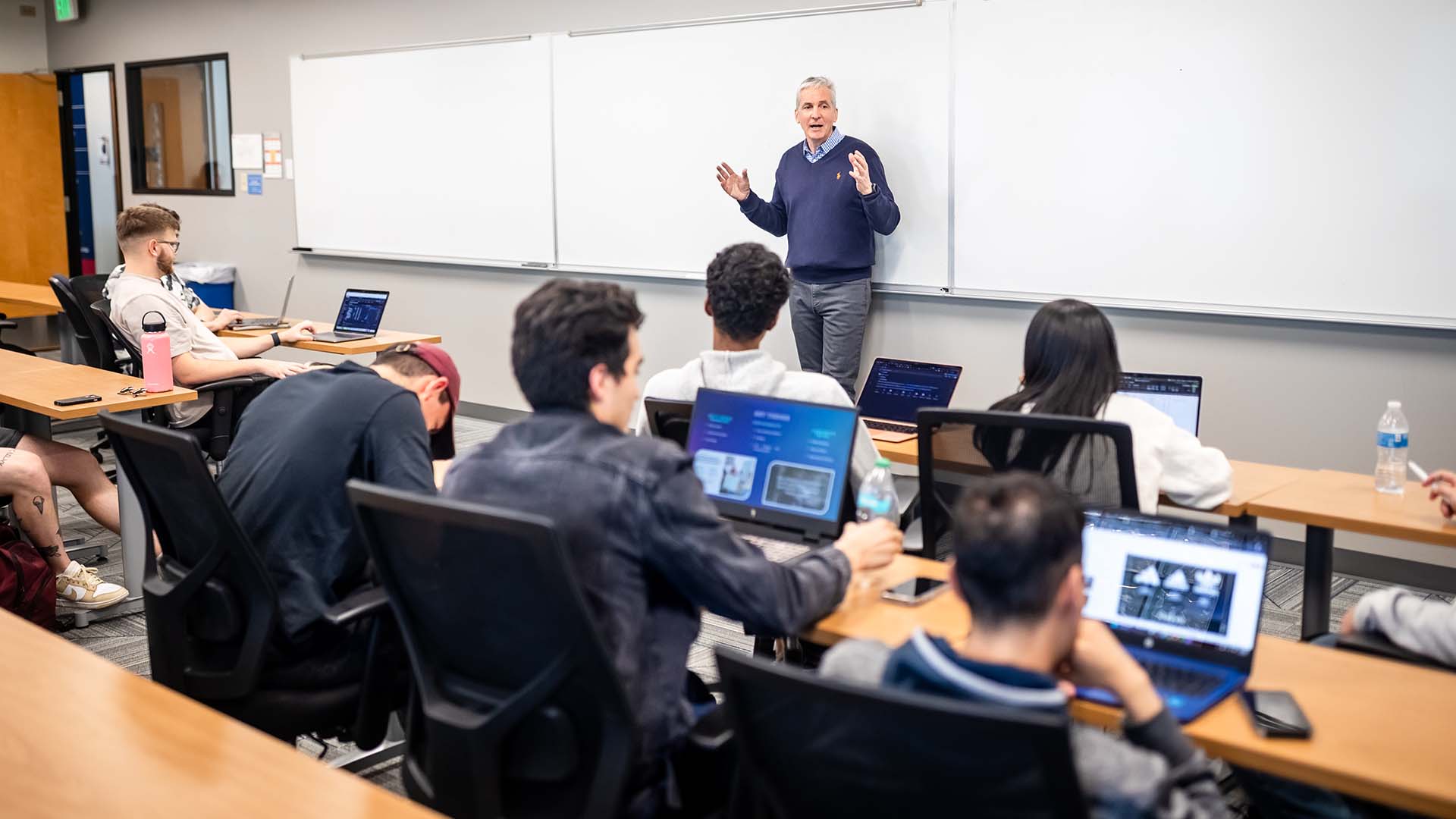6 tax tips for college students
The final day to file is April 18. Here’s what an Accounting professor and CPA says you should keep in mind.

Managing finances can feel like a daunting task to many college students, especially when taking into account how tax returns can affect the Free Application for Federal Student Aid.
Many students may be unsure of whether they’re required to file taxes, and if not, if it’s worth the effort to do so. While the process may seem overwhelming, understanding the nuances of filing taxes as a student may lead to positive results down the road.
Metropolitan State University of Denver’s Robert Persichitte, affiliate professor in the Department of Accounting and a Certified Public Accountant, outlines what students should keep in mind when filing taxes, especially as they relate to FAFSA.
1. Plan around the FAFSA. Do the tax planning before filling out your FAFSA, keeping in mind the impact it may have on the results.
You can control some things that affect your Expected Family Contribution. One of the really big ones, and this is where people mess up a lot, is gifts from grandparents. If Grandma has money and wants to send you to college, don’t let her pay any of it until you’re done. If she gives you a gift, that counts as income, and it can decrease your benefits from the federal government.
Take the loans, especially loans at a low interest rate, and pay them off after filing FAFSA for your last year. And Grandma can pay for that.
RELATED: 4 changes to FAFSA and Pell for 2023-24
2. Think twice before anyone in your family takes money out of their 401(k) to help pay for college.
If your parents take money out of a 401(k), that’s going to impact your FAFSA. In most cases, it has two negative impacts. No. 1, it’s now counted as taxable income, which for most people will be taxed at a rate of 25% or more. When it was in the retirement account, it was shielded. It did not count against your family member as an asset. Once it’s pulled out, it no longer has that protection.
Also, they don’t want to get hit with a triple whammy: They’re expected to pay the taxes, they get the early-distribution penalty, and you get the hit on your FAFSA. Family members should leave that money in those retirement accounts.
3. Colorado provides a state-tax write-off many families don’t know about.
There’s a loophole for tuition fees that Colorado hasn’t closed yet. If you put tuition money into a Colorado 529 College Savings Program account the day before tuition is due and then take it from the account and give it directly to the college, most Colorado taxpayers can get a state-tax deduction. A 529 is a savings account for college, for kids as young as 5 or 6, that will grow tax-free and is intended to pay for college.
There’s nothing that prevents you from putting the full amount for tuition in the account an hour before you use it. As long as it goes into the account and it leaves the account, you get the state write-off. Just keep in mind that if the amount is above $16,000, then you have to file a gift tax return and possibly pay gift tax. There’s a limit to how much you can deduct, so be aware of those limits as well.
4. Understand the American Opportunity Credit and how it affects you.
If your parents can claim you as a dependent, generally they are the ones who need to take the education-based credits. The American Opportunity Tax Credit helps by giving a maximum $2,500 credit for education expenses to qualifying taxpayers.
Coordinate with them and make sure you understand the phase-outs. Are they supporting you or can you support yourself? If you support yourself, then you can claim the credit. If your parents are supporting you but their incomes are too high, they won’t get the credit. And if their incomes are too low, they also won’t get it. It’s kind of a “Goldilocks zone” where you owe enough in taxes for it to matter but not so much that you don’t get the credit.

5. Understand W-4 exempt status, especially as a college student.
Before you start your job, figure out if you’re going to need to file taxes at all. If you’re making less than about $12,000 per year as an employee, you probably don’t need to file a tax return. You’ll be provided with a W-4 form by your employer once you start at your new job. If you’ll be making less than $12,000 in a year, you should write “exempt,” and the employer won’t take any taxes out of your paychecks. You get all the money. There’s no refund at the end of the year, but you also don’t have to file a tax return in most cases.
6. Always fill out the FAFSA, no matter your individual circumstances.
Most people fill out their FAFSA, but a lot of students don’t. It’s free money, and in a lot of cases, you don’t have to pay it back.
Just fill it out, even if you think there’s no chance you’re going to get anything. Even if you have wealthy parents or a ton of assets or a high-paying job, fill it out anyway. There are a lot of scholarships that are not need-based but still require the FAFSA, and they still require that Expected Family Contribution number.
Don’t assume that you’re not going to get anything. The limits are pretty high on who can get some type of benefit from it. So just fill it out. It doesn’t cost you anything, and it’s not going to hurt you to fill it out. Your worst-case scenario is you don’t get any benefits and you pay the same amount. Fill it out just in case.
Note: These statements may not apply in every case. Seek professional advice from a CPA if you have questions about your specific tax situation.






